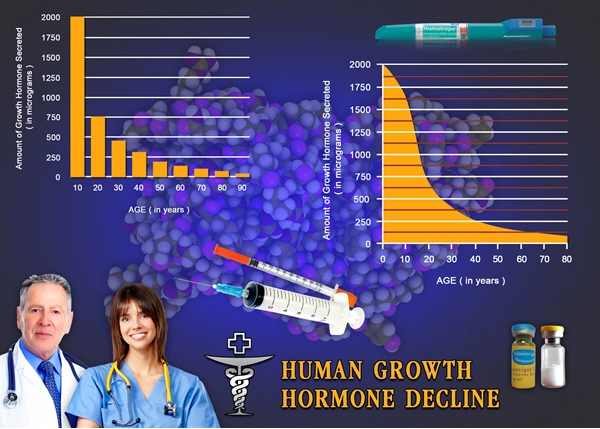Introduction
Autoimmune disorders present a complex challenge in the realm of urological health, particularly for American males. These conditions can lead to a variety of complications, ranging from urinary tract infections to more severe renal issues. This article aims to provide a detailed exploration of strategies for managing these complications and improving patient outcomes. By understanding the intersection of urological health and autoimmune disorders, healthcare providers can offer more targeted and effective interventions.
Understanding Autoimmune Disorders and Their Impact on Urological Health
Autoimmune disorders occur when the body's immune system mistakenly attacks its own tissues. In American males, common autoimmune conditions such as rheumatoid arthritis, lupus, and type 1 diabetes can have significant repercussions on urological health. The inflammatory processes associated with these disorders can lead to damage in the kidneys, bladder, and other parts of the urinary system. For instance, lupus nephritis, a kidney disorder caused by systemic lupus erythematosus, can result in severe renal impairment if not managed properly.
Common Urological Complications in Males with Autoimmune Disorders
Males with autoimmune disorders are at an increased risk of developing several urological complications. Urinary tract infections (UTIs) are more prevalent due to compromised immune function. Additionally, chronic inflammation can lead to interstitial cystitis, a condition characterized by bladder pain and frequent urination. In more severe cases, autoimmune disorders can cause glomerulonephritis, a condition that affects the kidney's filtering units and can lead to kidney failure if left untreated.
Strategies for Managing Urological Complications
Effective management of urological complications in males with autoimmune disorders requires a multifaceted approach. Regular monitoring of kidney function through blood tests and urinalysis is crucial. Early detection of issues such as proteinuria or hematuria can prompt timely interventions. Medications such as immunosuppressants and anti-inflammatory drugs can help manage the underlying autoimmune condition and reduce inflammation in the urinary system.
Lifestyle Modifications and Preventive Measures
Lifestyle modifications play a pivotal role in managing urological health. Adequate hydration is essential to prevent UTIs and maintain kidney function. A balanced diet rich in anti-inflammatory foods, such as fruits, vegetables, and omega-3 fatty acids, can also support overall health. Regular exercise helps in maintaining a healthy weight, which is beneficial for kidney function. Additionally, avoiding smoking and excessive alcohol consumption is crucial, as these can exacerbate autoimmune symptoms and urological issues.
Collaborative Care and Patient Education
A collaborative approach involving urologists, rheumatologists, and primary care physicians is essential for comprehensive care. Regular communication between specialists can ensure that all aspects of the patient's health are addressed. Patient education is equally important. Males with autoimmune disorders should be informed about the signs and symptoms of urological complications, the importance of regular check-ups, and the need to adhere to prescribed treatments.
Innovative Treatments and Future Directions
Recent advances in medical science offer hope for improved management of urological complications in males with autoimmune disorders. Biologic therapies, which target specific components of the immune system, are showing promise in reducing inflammation and preserving kidney function. Additionally, ongoing research into the microbiome and its role in autoimmune disorders may lead to new preventive and therapeutic strategies. As these innovations continue to evolve, they hold the potential to significantly enhance patient outcomes.
Conclusion
Managing urological health in American males with autoimmune disorders is a complex but achievable goal. By understanding the specific complications associated with these conditions and implementing a comprehensive management strategy, healthcare providers can improve patient outcomes. Regular monitoring, lifestyle modifications, collaborative care, and staying informed about innovative treatments are all crucial components of effective management. Through these efforts, males with autoimmune disorders can lead healthier, more comfortable lives.

- Urological Health Guide: Conditions, Sexual Wellness, and Lifestyle Impact on American Men [Last Updated On: March 8th, 2025] [Originally Added On: March 8th, 2025]
- Modern Urology: Minimally Invasive, Advanced Diagnostics, Telemedicine for American Males [Last Updated On: March 18th, 2025] [Originally Added On: March 18th, 2025]
- Urological Conditions and Their Impact on Male Fertility: Diagnosis and Treatment [Last Updated On: March 18th, 2025] [Originally Added On: March 18th, 2025]
- Genetics and Urological Health: Insights for American Men's Well-being [Last Updated On: March 19th, 2025] [Originally Added On: March 19th, 2025]
- Preventing Urological Infections in American Males: Risks, Measures, and Health Strategies [Last Updated On: March 19th, 2025] [Originally Added On: March 19th, 2025]
- Exercise and Urological Health: A Comprehensive Guide for American Men [Last Updated On: March 20th, 2025] [Originally Added On: March 20th, 2025]
- Urological Health Strategies for American Men: Balancing Work and Wellness [Last Updated On: March 20th, 2025] [Originally Added On: March 20th, 2025]
- Urological Health Guide for American Men: Symptoms, Conditions, and Prevention [Last Updated On: March 21st, 2025] [Originally Added On: March 21st, 2025]
- Smoking's Impact on Urological Health in American Men: Risks and Cessation Benefits [Last Updated On: March 21st, 2025] [Originally Added On: March 21st, 2025]
- Hydration's Vital Role in Urological Health for American Males: Strategies and Benefits [Last Updated On: March 21st, 2025] [Originally Added On: March 21st, 2025]
- Supplements and Urological Health: Benefits and Considerations for American Men [Last Updated On: March 21st, 2025] [Originally Added On: March 21st, 2025]
- Managing Urological Pain in Men: Causes, Diagnosis, and Treatment Options [Last Updated On: March 22nd, 2025] [Originally Added On: March 22nd, 2025]
- Urological Health in American Men: Conditions, Mental Well-being, and Holistic Management [Last Updated On: March 23rd, 2025] [Originally Added On: March 23rd, 2025]
- Urological Rehabilitation: Enhancing Quality of Life for American Men [Last Updated On: March 23rd, 2025] [Originally Added On: March 23rd, 2025]
- Heart Health and Urological Function: Critical Connections for American Males [Last Updated On: March 23rd, 2025] [Originally Added On: March 23rd, 2025]
- Urological Health's Psychological Impact on American Males: A Holistic Approach [Last Updated On: March 23rd, 2025] [Originally Added On: March 23rd, 2025]
- Obesity's Impact on Urological Health in American Men: Risks and Management Strategies [Last Updated On: March 23rd, 2025] [Originally Added On: March 23rd, 2025]
- Urological Surgery Recovery Guide for U.S. Males: Tips and Strategies [Last Updated On: March 23rd, 2025] [Originally Added On: March 23rd, 2025]
- Technological Advances Revolutionizing Urological Diagnosis for American Males [Last Updated On: March 23rd, 2025] [Originally Added On: March 23rd, 2025]
- Urological Education: Empowering American Males for Better Health Outcomes [Last Updated On: March 23rd, 2025] [Originally Added On: March 23rd, 2025]
- Veterans' Urological Care: Specialized Services and Innovative Treatments by VHA [Last Updated On: March 23rd, 2025] [Originally Added On: March 23rd, 2025]
- Urological Health Strategies for American Men Over 50 [Last Updated On: March 23rd, 2025] [Originally Added On: March 23rd, 2025]
- Medications' Impact on Urological Health: Insights for American Men [Last Updated On: March 24th, 2025] [Originally Added On: March 24th, 2025]
- Urological Health: Vital Screening for Young American Males' Well-being [Last Updated On: March 24th, 2025] [Originally Added On: March 24th, 2025]
- Essential Urological Procedures for American Males: A Comprehensive Guide [Last Updated On: March 24th, 2025] [Originally Added On: March 24th, 2025]
- Urological Health and Fertility: A Guide for American Males Planning Families [Last Updated On: March 24th, 2025] [Originally Added On: March 24th, 2025]
- Urological Health and Mental Well-being: A Holistic Approach for American Men [Last Updated On: March 24th, 2025] [Originally Added On: March 24th, 2025]
- Urological Health in Sports: Risks, Prevention, and Nutrition for Athletes [Last Updated On: March 25th, 2025] [Originally Added On: March 25th, 2025]
- Stress Impact on Urological Health in American Males: Prostate, Sexual, and Urinary Effects [Last Updated On: March 25th, 2025] [Originally Added On: March 25th, 2025]
- Urological Health: Vital for American Men's Longevity and Quality of Life [Last Updated On: March 25th, 2025] [Originally Added On: March 25th, 2025]
- Urological Health and Sleep Quality: A Vital Connection for American Men [Last Updated On: March 25th, 2025] [Originally Added On: March 25th, 2025]
- Urological Health Management Tips for American Men Traveling [Last Updated On: March 25th, 2025] [Originally Added On: March 25th, 2025]
- Urological Health and Insurance: Navigating Coverage for Men's Well-being [Last Updated On: March 26th, 2025] [Originally Added On: March 26th, 2025]
- Urological Health: Impact and Management for American Men's Quality of Life [Last Updated On: March 26th, 2025] [Originally Added On: March 26th, 2025]
- Urological Health: Vital for American Men's Wellness and Quality of Life [Last Updated On: March 26th, 2025] [Originally Added On: March 26th, 2025]
- Debunking Urological Myths: Empowering American Men with Health Facts [Last Updated On: March 26th, 2025] [Originally Added On: March 26th, 2025]
- Managing Urological Health in Men: Chronic Conditions and Strategies [Last Updated On: March 26th, 2025] [Originally Added On: March 26th, 2025]
- Dietary Guide for Urological Health in American Men: Nutrition and Hydration Focus [Last Updated On: March 27th, 2025] [Originally Added On: March 27th, 2025]
- Urological Health and Cancer: Vital Insights for American Males [Last Updated On: March 27th, 2025] [Originally Added On: March 27th, 2025]
- Urological Health and Bone Density: A Vital Connection for American Males [Last Updated On: March 27th, 2025] [Originally Added On: March 27th, 2025]
- Alcohol's Impact on Urological Health: Risks and Mitigation Strategies for Men [Last Updated On: March 28th, 2025] [Originally Added On: March 28th, 2025]
- Urological Health's Impact on American Men's Social Lives and Management Strategies [Last Updated On: March 28th, 2025] [Originally Added On: March 28th, 2025]
- Environmental Impacts on Urological Health in American Males: Risks and Mitigation Strategies [Last Updated On: March 28th, 2025] [Originally Added On: March 28th, 2025]
- Urological Health Guide for American Males: Best Practices and Prevention [Last Updated On: March 28th, 2025] [Originally Added On: March 28th, 2025]
- Urological Health Essentials for American Men: Prevention, Screening, and Lifestyle [Last Updated On: March 28th, 2025] [Originally Added On: March 28th, 2025]
- Urological Health and Hearing Loss: A Critical Connection in American Males [Last Updated On: March 28th, 2025] [Originally Added On: March 28th, 2025]
- Exercise and Urological Health: Benefits, Safe Practices, and Specific Exercises for American Males [Last Updated On: March 28th, 2025] [Originally Added On: March 28th, 2025]
- Urological Health and Skin Care: A Vital Connection for American Males [Last Updated On: March 28th, 2025] [Originally Added On: March 28th, 2025]
- Urological Health and Immunity: Strategies for American Males [Last Updated On: March 29th, 2025] [Originally Added On: March 29th, 2025]
- Integrating Urological Health into Men's Campaigns: A Vital Step for American Males [Last Updated On: March 29th, 2025] [Originally Added On: March 29th, 2025]
- Urological Health Linked to Vision Problems in American Men: Importance of Screenings [Last Updated On: March 29th, 2025] [Originally Added On: March 29th, 2025]
- Urological Health Advocacy: Enhancing Men's Well-being in the U.S. [Last Updated On: March 29th, 2025] [Originally Added On: March 29th, 2025]
- Urological Health: Key to Men's Sexual Wellness in America [Last Updated On: March 29th, 2025] [Originally Added On: March 29th, 2025]
- Urological-Dental Health Link: Implications for American Men's Well-being [Last Updated On: April 1st, 2025] [Originally Added On: April 1st, 2025]
- Urological-Respiratory Health Link: Impacts and Management for American Males [Last Updated On: April 4th, 2025] [Originally Added On: April 4th, 2025]
- Urological Health: Vital for American Men's Wellness and Research Focus [Last Updated On: April 4th, 2025] [Originally Added On: April 4th, 2025]
- Urological Health in Men: Importance, Detection, and Lifestyle Impact in America [Last Updated On: April 5th, 2025] [Originally Added On: April 5th, 2025]
- Urological and Digestive Health: Vital Connections for American Males' Well-being [Last Updated On: April 6th, 2025] [Originally Added On: April 6th, 2025]
- Enhancing Urological Health Policy for American Men: Needs and Strategies [Last Updated On: April 7th, 2025] [Originally Added On: April 7th, 2025]
- Urological Health and Neurological Impact in American Males: A Comprehensive Overview [Last Updated On: April 9th, 2025] [Originally Added On: April 9th, 2025]
- Urological Health's Impact on American Men's Careers: Strategies for Management [Last Updated On: April 9th, 2025] [Originally Added On: April 9th, 2025]
- Urological Health's Impact on Men's Family Life in the U.S.: Challenges and Support [Last Updated On: April 10th, 2025] [Originally Added On: April 10th, 2025]
- Urological Health and Endocrine System: Vital Connections for Men's Well-being [Last Updated On: April 10th, 2025] [Originally Added On: April 10th, 2025]
- Urological and Cardiovascular Health: Vital Connections and Preventive Strategies for American Males [Last Updated On: April 10th, 2025] [Originally Added On: April 10th, 2025]
- Urological Health in Men: Importance, Detection, and Integration into Wellness Programs [Last Updated On: April 11th, 2025] [Originally Added On: April 11th, 2025]
- Urological and Musculoskeletal Health Link in American Men: A Holistic Approach [Last Updated On: April 11th, 2025] [Originally Added On: April 11th, 2025]
- Urological Health: Vital for American Men's Wellness and Longevity [Last Updated On: April 13th, 2025] [Originally Added On: April 13th, 2025]
- Urological Health's Impact on American Men's Community Involvement and Engagement [Last Updated On: April 14th, 2025] [Originally Added On: April 14th, 2025]
- Urological Health and Immune System: Strategies for American Males [Last Updated On: April 15th, 2025] [Originally Added On: April 15th, 2025]
- Urological Health's Impact on Men's Reproductive Well-being and Fertility [Last Updated On: April 15th, 2025] [Originally Added On: April 15th, 2025]
- Urological Health and Mental Well-being: A Holistic Approach for American Males [Last Updated On: April 15th, 2025] [Originally Added On: April 15th, 2025]
- Urological Health and Emotional Well-being: A Comprehensive Guide for American Men [Last Updated On: April 16th, 2025] [Originally Added On: April 16th, 2025]
- Urological Health: Vital for American Men's Overall Well-being and Quality of Life [Last Updated On: April 16th, 2025] [Originally Added On: April 16th, 2025]
- Urological Health: Vital for American Men's Well-being and Advocacy [Last Updated On: April 16th, 2025] [Originally Added On: April 16th, 2025]
- Urological Health's Impact on American Males' Physical Well-being: A Comprehensive Overview [Last Updated On: April 17th, 2025] [Originally Added On: April 17th, 2025]
- Urological Health's Impact on American Men's Social Well-being: Strategies and Insights [Last Updated On: April 18th, 2025] [Originally Added On: April 18th, 2025]
- Urological Health: Vital for Men's Well-being and Prevention Strategies [Last Updated On: April 19th, 2025] [Originally Added On: April 19th, 2025]
- Urological Health in American Men: Education, Early Detection, and Stigma Reduction [Last Updated On: April 19th, 2025] [Originally Added On: April 19th, 2025]
- Urological Health's Impact on American Males' Life Quality and Proactive Care Strategies [Last Updated On: April 21st, 2025] [Originally Added On: April 21st, 2025]
- Guide to Urological Health: Conditions, Prevention, and Treatment for American Men [Last Updated On: April 22nd, 2025] [Originally Added On: April 22nd, 2025]



List of USA state clinics - click a flag below for blood testing clinics.
Word Count: 595


















































